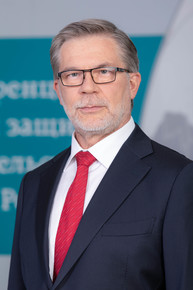ФАС в СМИ: Customs Union to have four antitrust agencies by 2014, says Deputy FAS Head
High quality global journalism requires investment. Please share this article with others using the link below, do not cut & paste the article. See our Ts&Cs and Copyright Policy for more detail.
This article is provided to FT.com readers by PaRR (Policy and Regulatory Report)— a newly launched product of The Mergermarket Group providing proprietary intelligence and research on competition law and sector-specific regulatory changes around the world.
The Customs Union between Russia, Belarus and Kazakhstan will have four antimonopoly agencies by 2014, according to Andrey Tsyganov, the deputy head of Russia’s Federal Antimonopoly Service (FAS), in an exclusive interview with PARR.
Tsyganov said that the three bodies will comprise the national antimonopoly agencies of the three countries, plus the antimonopoly body of the Eurasian Economic Commission. The organisations taken together will create synergies, he added.
The agencies will use the so-called competition model law, which was developed for the single economic space of Russia, Kazakhstan and Belarus, as previously reported by PARR. The model law will be discussed publicly in all member countries and it will be presented for approval to the presidents of these countries in July 2013, Tsyganov told PaRR.
The Eurasian Economic Commission will start considering cross-border antimonopoly issues in the autumn and winter of 2013, and by 2014 it will take full ownership over them, Tsyganov said. Firstly, the Commission will start handling cross-border unfair competition cases, then it will start supervising abuse of dominance cases, and finally, it will undertake cartel cases, Tsyganov said. By 2014, the Commission will be able to initiate cases independently, he added.
Tsyganov stressed that harmonisation of competition law in member states is the main goal for the work of the model law. He said that currently, national governments actively harmonise their laws. For example, Kazakhstan recently passed legislation to comply with competition laws of other member states.
The model law is non-binding in nature and does not cancel or override national laws, Tsyganov told PaRR, but is instead a series of recommendations. Yet, the status of the document means that its clauses will be integrated into the national legislation of member states.
Russian competition law was taken as an example for the model law, because it was recognised as modern and developed, the FAS deputy head said. For example, “rule of reason” was approved in Russian competition policies in 1991, and is adopted in the model law. This norm would allow the consideration of pros and cons in each case to make sure that consumers are not disadvantaged. This norm will be particularly helpful when considering intellectual property rights cases, he added.
Russia is also responsible for addressing the issue of confidential information exchange because Russia’s FAS has never had a confidential information leak and its treatment of confidential information has proved to be good, Tsyganov said.
The FAS deputy head also told PARR that the Customs Union will use the principle of “reverse delegation”, which is extensively used in the EU. In other words, the Customs Union will be able to forward some cases to national governments, if national agencies appear more competent in certain cases, Tsyganov said.



